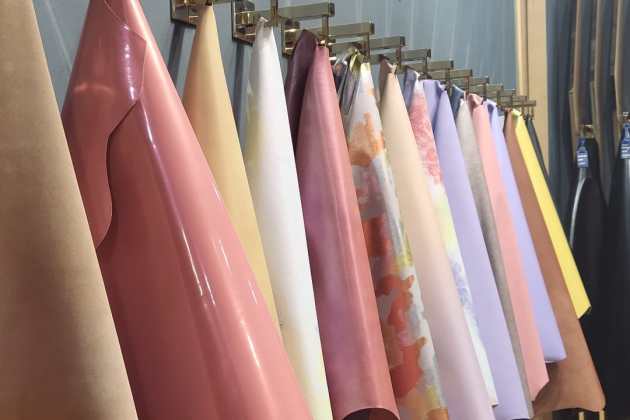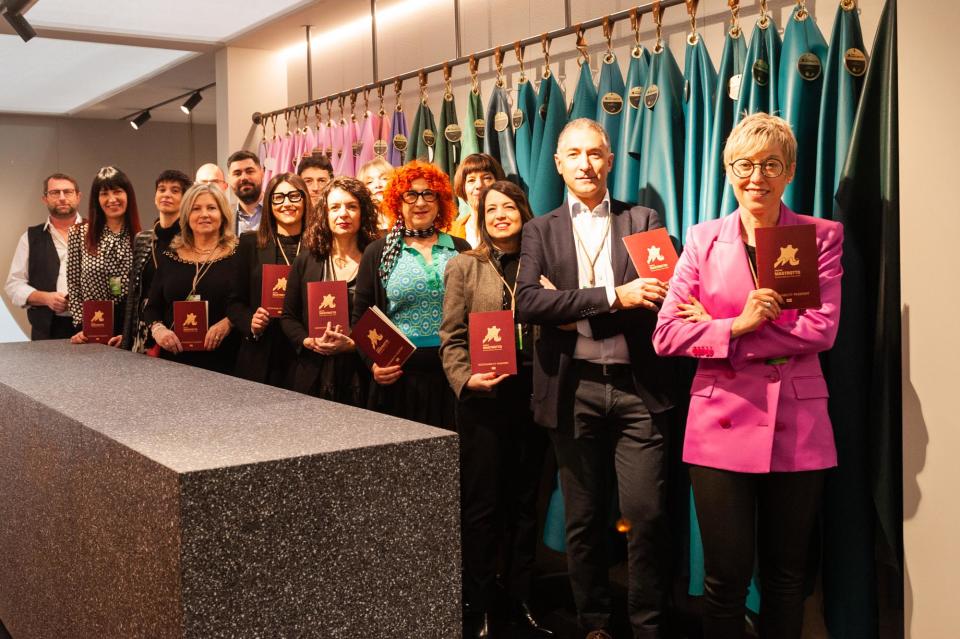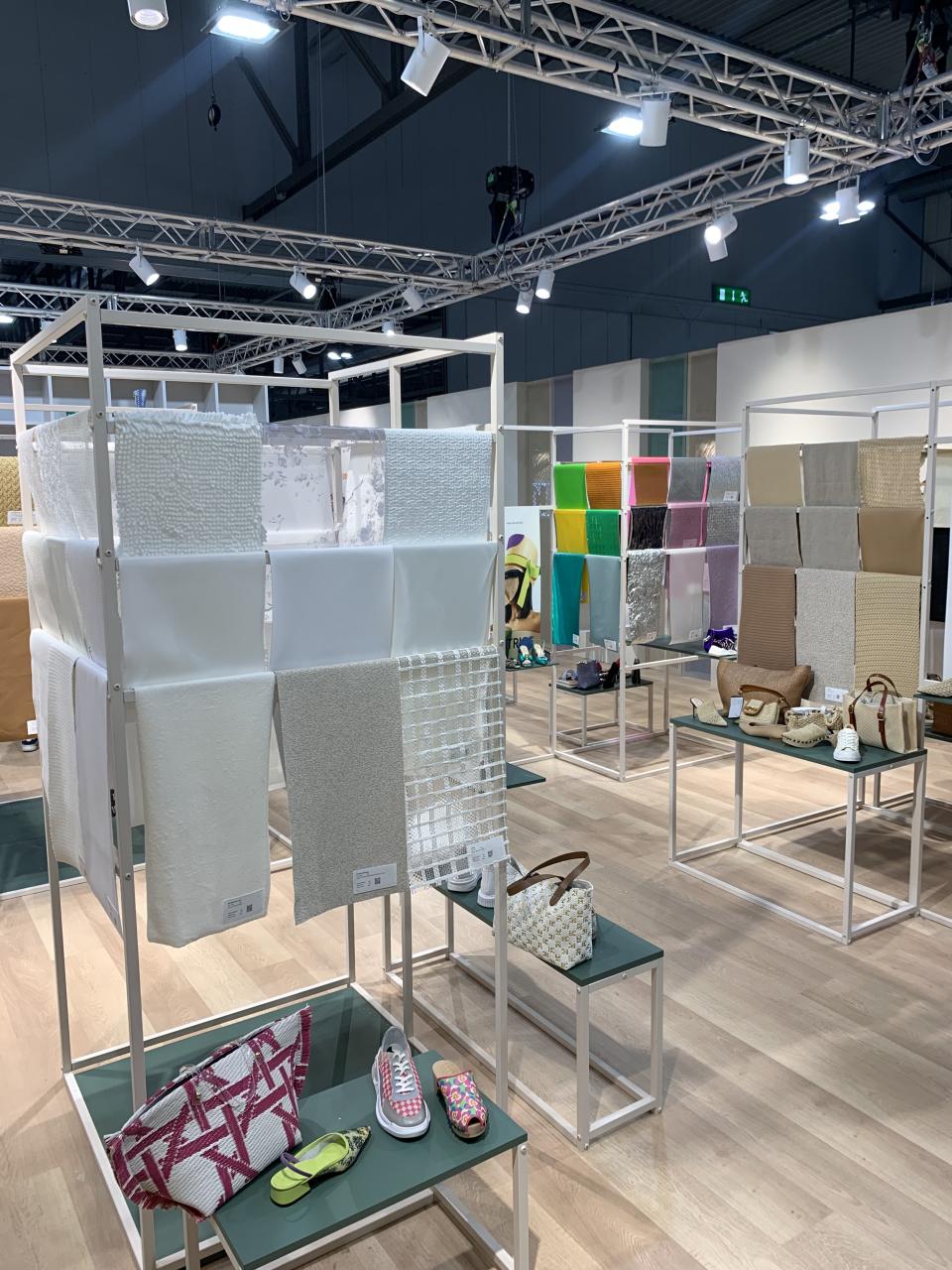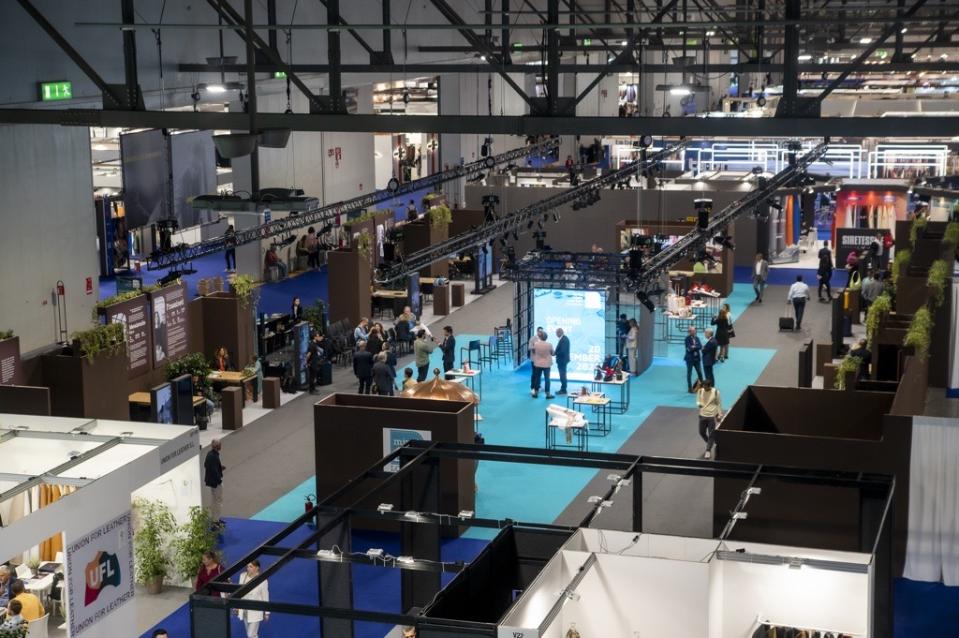High Quality, Luxury Priorities at Lineapelle

MILAN — With its 1,161 exhibitors from 42 countries and more than 22,000 buyers, up 42 percent compared to a year ago, Lineapelle closed with pre-COVID-19 numbers and an upbeat mood.
The three-day leather trade show closed here on Feb. 23.
More from WWD
More than 40 percent of visitors came from abroad, mainly from Germany, Spain, France, Portugal, the United Kingdom and the Netherlands, while positive signs of a restart came from South Korea and China. The U.S. remains a key market, even if it’s showing signs of slowing down.
The war in Ukraine and the inflationary trend continue to worry exhibitors, who believe in a market recovery around the second quarter of the year, when they imagine that the reopening of China should be completed, fueling sales and exports.
To continue to boost business, high-quality products and sustainability are two key factors.
“Luxury and premium segments are pushing sales in Italy, but we are witnessing a growing interest for sustainability,” said Chiara Mastrotto, president of Gruppo Mastrotto. The group launched its “Sustainability Passport” at Lineapelle, which shows all of the steps and results achieved in terms of carbon neutrality, environmental certifications and patents.
Gruppo Mastrotto has 15 plants around the world, with sales of more than 360 million euros. Exports account for 80 percent of sales in more than 110 countries. “The U.S. is a dynamic area and it’s devoted to new products and creativity, while premium and luxury are the best-performing segments in the European markets,” Mastrotto observed.

Mastrotto drew attention to the essence and purity of leather for natural and elegant looks. “Core” was the most simple and sophisticated collection, while “Blending” mixed natural leather and a touch of sparkle. The “Reviva” collection worked on recovering the wastes to give them a new life.
Costantino Karazissis, chief executive officer and founder of Italian Converter, spoke of the importance of a true conversion of companies to a sustainable production chain. By the end of the year a new plant will be operating just three kilometers from the existing one, on the outskirts of Pavia. The complex extends over a total surface of 16,000 square meters, three times more than the first one.
“The plant will host new production lines, following our new strategies,” Karazissis explained. The CEO underscored how the fashion industry is a growing market for Italian Converter, but the management is also exploring the furniture and design sectors. “After being at Fuorisalone last year, we are working on showing our ideas and products during Salone del Mobile’s next edition,” he said.
The firm closed 2022 with turnover of 25 million euros, up 10 percent on the previous year.

“Luxury brands are paying much more attention on the combination between sustainability and creativity,” said Massimiliano Schiavini, creative director at Superior SpA, the tannery based near Pisa. The Prada Group has acquired 43.65 percent of its capital, said Schiavini.
Superior featured a spring/summer collection inspired by nature and by a ’90s atmosphere: “After difficult years due to a global crisis, pandemic and war, we wanted to spread a message of optimism, lightness and restart,” Schiavini added.
The company’s turnover increased by 2 percent last year (and by 54 percent compared to 2020). “Prada’s acquisition brought a positive outlook on the middle-term future,” said Stefano Caponi, CEO of Superior. “We are working on new projects” from products to management, and one of the most important goals achieved was the LWG Silver rating certification (on sustainable standards).
At Lineapelle, Mipel Lab regrouped 10 Italian high-end leather companies. “We are aiming at supporting entrepreneurs in the country and abroad,” explained Franco Gabbrielli, president of Assopellettieri and Mipel Lab, “but we are also carrying forward the work started in terms of training and qualified labor.”

Gabbrielli underscored that investments in training will soon find their outlets in a new training program designed to be the driving force of the cultural change that the industry needs, “just as it happened in the food and beverage industry,” which means returning a level of prestige to craftsmen and artisans.
“As a company, we have funded local professional schools and hosted students first as trainees, then as workers,” said Stefano Giacomelli, CEO of Tivoli Group, one of Mipel Lab’s entrepreneurs.
Tivoli Group has performed well in the last year, with sales of 51 million euros, a 5 percent increase on 2021. Exports represented 90 percent of the turnover, “thanks to new clients in the U.S. market. The Mipel Lab U.S. edition has helped us a lot in building new relationships.”
Antonio Quirici, president of the Tuscan cowhide consortium Consorzio Cuoio di Toscana, said training new generations is a vital growth driver for Italian companies. Consorzio’s seven firms are worth 90 percent of the European production and have come back to pre-pandemic turnover levels.
Europe and Asia are the most important markets for Consorzio’s tanneries, but the U.S. is growing: “We are asked for a sustainable supply chain and products,” Quirici said, meaning the use of plastic-free and recycled materials, together with food industry waste.
The president is also CEO of one of the Consorzio’s members, Bonistalli & Stefanelli: “Around 50 percent of our sales are made abroad and the Asian market is the most important one, with China, Japan and Vietnam in particular.”
Among other innovative companies at Lineapelle, Run Italia stood out. Its core business is technical materials for both the safety and the running-shoe sectors, but the firm has launched a new line of products for the motorcycle industry, helmets in particular. “We want to boost our exports, which now represent 15 percent of our sales,” said production manager Fabio Bulgari.
Best of WWD

